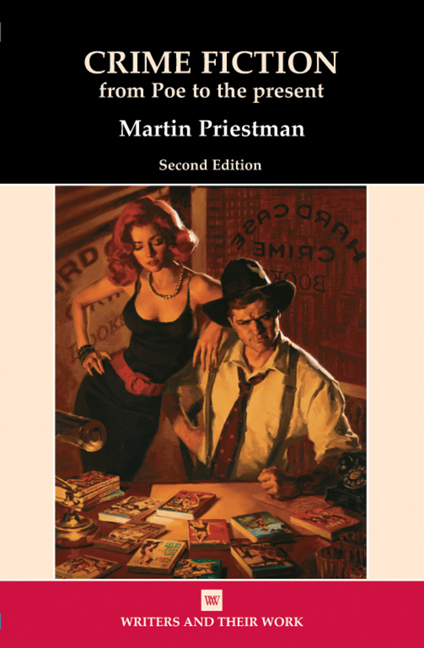Book contents
- Frontmatter
- Contents
- Acknowledgements
- A Chronology
- Introduction
- 1 The Detective Whodunnit from Poe to the First World War
- 2 The Detective Whodunnit from Christie to the Present
- 3 The Noir Thriller
- 4 The Hero-Thriller
- 5 Private Eyes: The Detective Thriller
- 6 Serial-killer Fiction and Other Developments
- Conclusion
- Notes
- Select Bibliography
- Index
1 - The Detective Whodunnit from Poe to the First World War
- Frontmatter
- Contents
- Acknowledgements
- A Chronology
- Introduction
- 1 The Detective Whodunnit from Poe to the First World War
- 2 The Detective Whodunnit from Christie to the Present
- 3 The Noir Thriller
- 4 The Hero-Thriller
- 5 Private Eyes: The Detective Thriller
- 6 Serial-killer Fiction and Other Developments
- Conclusion
- Notes
- Select Bibliography
- Index
Summary
The detective whodunnit focuses primarily on identifying the perpetrator of a crime which for most of the story or novel already lies in the past. As Tsvetan Todorov has pointed out in his useful essay ‘The Typology of Detective Fiction’, this placing of the major event in a concealed ‘first story’ which has taken place prior to most of the narrated action compels the ‘second story’ of the latter to be relatively static, focusing our attention on a slow process of uncovering (and sometimes on the practical difficulties of narrative itself), rather than on any very meaningful or character-revealing action. The only such ‘action’ to which we can look forward – the final unmasking of the perpetrator – can happen only once, at the very end, which is also the moment when the hitherto concealed ‘first story’ comes to be told in its entirety. As Todorov also argues, however, this strangely splitlevel narrative approach is only an intensification of the split in all fiction between what Russian Formalist critics, following Aristotle, have defined as ‘story’ (what is actually supposed to have happened) and ‘plot’ (the way we are told about it).
Since the whodunnit makes a particular use of what may be seen as the raw material of narrative in general, it is not surprising that many apparent antecedents for it can be found before its generally recognized inception, in 1841, with Poe's ‘The Murders in the Rue Morgue’. One of the most striking such antecedents is Sophocles's tragedy Oedipus the King, in which the hero, Oedipus, conducts a series of interrogations in his official kingly role to unmask the murderer of his predecessor King Laius. Through a meticulously plotted trail of evidence, it finally becomes clear that he himself was the unwitting killer in circumstances famously also involving parricide and incest. With the revelation comes punishment – self-punishment in this case, but it is arguable that purely as a detective Oedipus has done all the most rigorous whodunnit reader could demand, and, through the apparently alien device of the baffled chorus, Sophocles even ensures a proto-Watson-like channelling of maximum audience attention to the single issue of ‘who done it?’
- Type
- Chapter
- Information
- Crime Fictionfrom Poe to the present, pp. 6 - 19Publisher: Liverpool University PressPrint publication year: 2013



